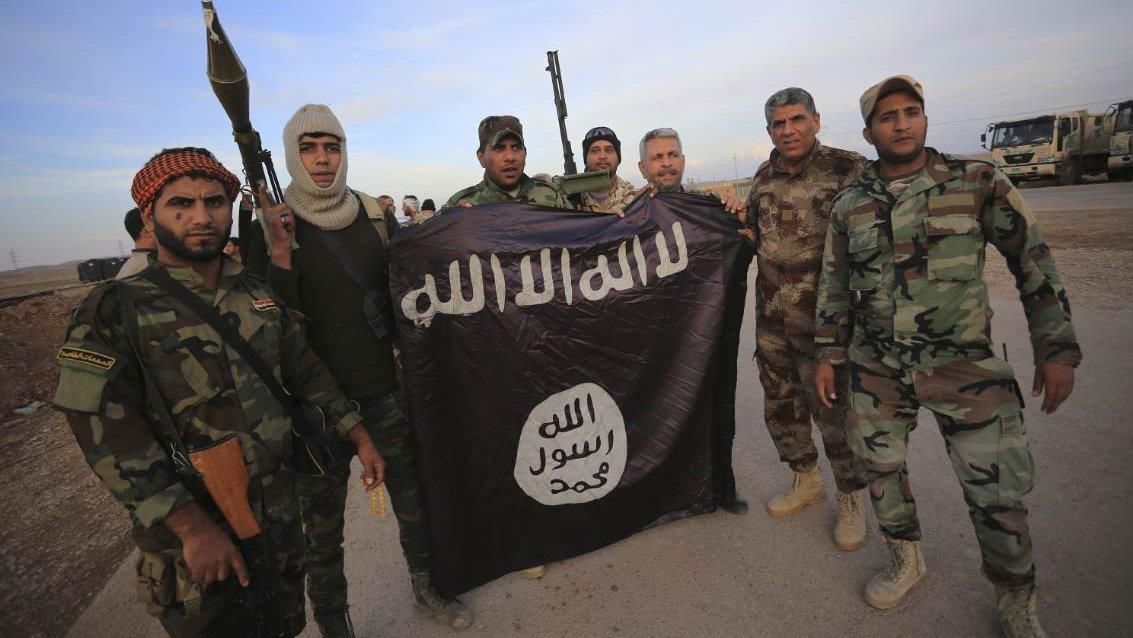Study Shows Technical College Degrees Make Ideal Terrorists
New analysis from the British Council, based on British intelligence dossiers and academic research, finds that college degrees in technical areas like engineering create the perfect Islamic terrorist, “intelligent and curious, but unquestioning of authority” since they require “precisely the passive acceptance of right and wrong, and the faithful reproduction of knowledge learned by rote that jihadism seems also to require,” versus the critical examination and debate liberal arts degrees that could stop the creation of future jihadis.
Analysis from Oxford University also shows a large number of Islamic terrorists are highly educated professionals, and do not come from the ranks of the uneducated poor, as analysts and Administration officials, including Secretary of State John Kerry, have asserted. “Many Islamic radicals are not economically dispossessed, are often better educated than their peers, and quite a few went to university,” Oxford says.
Terrorist leaders recruit from the educated ranks of their local populations, recruits who had gravitated towards technical subjects, like engineering degrees, versus religious or political courses, according to the British Council, Oxford University and the University of Durham in the U.K.
The new study from the British Council by Martin Rose, a senior consultant on the Middle East and North Africa, is supported by a 2007 study published by Oxford University. It looked at a sample of 326 Islamic terrorists in the Middle East and North Africa, and found that nearly half, 48.5%, had graduated from a university. About 44% of these individuals had earned engineering degrees, the largest cohort overall.
The Oxford study, co-authored by Diego Gambetta of Nuffield College at Oxford and Steffen Herton of the University of Durham, found about 57% of the terrorists analyzed had “what we may call ‘elite degrees’–engineering, medicine, and science.”
The co-authors said: “Even more surprising, many of them are engineers – a profession that we would not naturally associate with a religiously inspired movement.” That echoes the appeal in September 2014 by the Islamic State leader, Abu Bakr al-Baghdadi, for “judges, doctors, engineers and people with military and administrative experience” to join the ISIS caliphate.
The Islamic terrorists responsible for the San Bernardino massacre, Syed Rizwan Farook and his wife Tashfeen Malik, were educated at universities. Farook had graduated from California State University, San Bernardino with a degree in environmental health in 2010. His wife had studied pharmacy at Bahauddin Zakariya University in Multan, southern Punjab.
The mastermind of 9/11, Osama Bin Laden, along with his lieutenants Mohammed Atta and Khalid Sheikh Mohammed, were engineering graduates. So was Seifeddine Rezgui, the terrorist responsible for massacring tourists on a Tunisian beach.
Al-Qaeda’s top leadership included other professionals. Ayman al-Zawahiri had a degree in medicine. Zawahiri at one point proudly “boasted that the Islamist movement had found its greatest recruiting success in the university's two most élite faculties—the medical and engineering schools,” the Oxford University study noted, adding that professionals have been counted among the ranks of the Muslim Brotherhood dating back to the 1940s.
The terrorists responsible for the 1993 World Trade Center bombing had attended universities, with 42% earning engineering degrees, the Oxford study noted. Of the 25 terrorists and conspirators connected to the 2011 World Trade Center bombing, 17 had university degrees, and eight of them had engineering degrees, the Oxford study said.
Curiously, countries in the Middle East and North Africa historically spend about a fifth of their budgets on education, higher than the world average. But their students don’t graduate equipped with the creative and critical, analytical skills that can challenge ideologies like radical Islam, Rose says.
Specifically, Rose suggests that the education philosophy in the Middle East and North Africa is one of rote learning and exam-passing, as opposed to critical thinking.
Students in the Mideast and North Africa are applauded for taking up technical studies like engineering degrees that don’t allow for ambiguity or questioning the status quo, making them susceptible to radicalization, Rose says. Technical degrees in this region are “traditionally viewed as superior, with the arts and social sciences relatively neglected,” Rose notes.
In turn, “graduates are not equipped with soft skills to increase their employability,” and as a result, “the educated middle classes” in these countries “experience high graduate unemployment and frustrated upward mobility,” he says, cautioning that lack of critical thinking is found in universities in developed countries as well. Similarly, in 2003 a UN human development report indicated that education in the Middle East fostered obedience, subordination and compliance versus critical thinking.
Technical college degrees are found in other radicalized Islamic networks. About 52 of the 81 top leaders of Hamas, or 64%, had higher education degrees as of the time of the Oxford study, with 19 of them graduating as engineers.
Two of the three men who founded Lashkar e-Toiba in 1987, a Sunni fundamentalist Pakistani group combating India's sovereignty over the State of Jammu and Kashmir, were professors at the University of Engineering and Technology of Lahore. The three leading suspects in the September 2004 bombing of the Australian Embassy in Jakarta, the capital of Indonesia, had an engineering background.
Engineers also have been prominent in the radical, Iranian cabinet, including the former Iranian president, Mahmoud Ahmadinejad, who had trained as a civil engineer, the Oxford study noted. Hezbollah, the Lebanese Shiite group, has a very strong link with engineers. Soon after it was founded in 1982, Hezbollah established Jihad al-Binaa, an organizational branch devoted to the reconstruction of civil infrastructure and private housing.




















